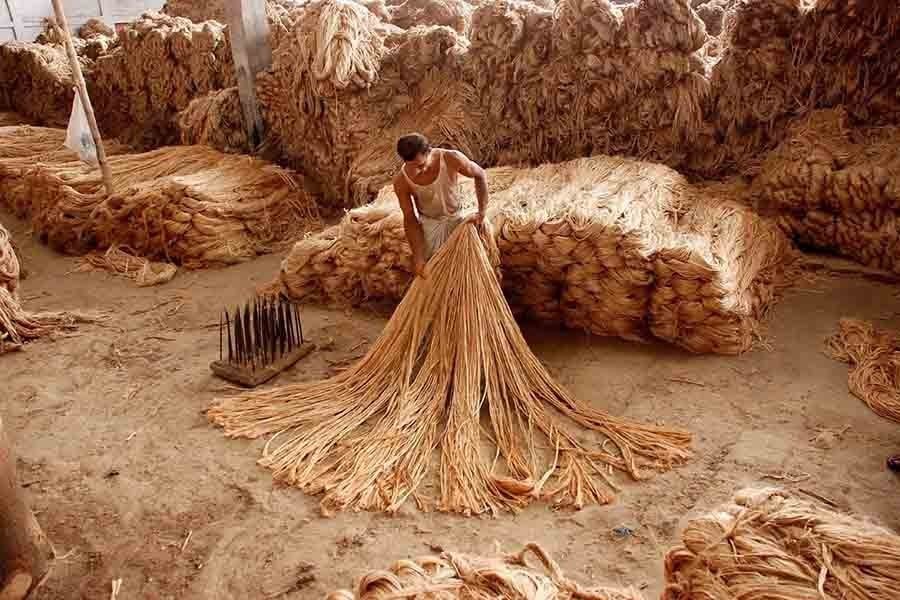It is clear that things are not well on the jute front. While the recent privatisation of the remaining state-owned jute mills has brought a sudden change on the jute scenario, the prospect of Public Private Partnership (PPP) to have them reopened with renewed vigour appears rather distant. On the other hand, there are problems with a large number of private mills fraught with the scarcity of raw jute. Jute millers and spinners last week urged upon the government to impose $250 a tonne in specific duty on export of raw jute and ban export of uncut raw jute to ensure adequate supply of raw materials to local factories. The association also expressed apprehension that production of jute goods might severely be affected due to shortage of raw jute and the disruption would raise the prices to an excessively high level. This may lead to not only a drastic fall in Bangladesh's export of jute products, but also capturing Bangladesh's export markets by the competitors is also highly likely.
Industry insiders opine that in the wake of less than expected harvest of raw jute this season due to late cultivation and flooding, there is the need to ensure that export of raw and uncut jute is discouraged, and policy intervention preferably by banning export of raw jute may somehow help the mills to keep on producing jute products. They fear that jute production might come down to only 5.5 million bales this year, more than 35 per cent lower than that of average annual jute production of 7.5 million bales. Reports published in a local daily says local jute and spinning mills have an annual demand for 6.0 million bales of raw jute and another half a million bales are required for domestic consumption. The prevailing state of shortfall would further worsen if export of raw jute goes unabated.
There is a strong demand for raw jute, particularly among neighbouring countries, which would find it convenient to import from here and in the process capture export markets held by Bangladesh. So, in all fairness, it is imperative that measures are in place to facilitate availability of raw jute to the local mills. While value addition of finished jute products is a factor not to lose sight of, the important issue is that there is a definite thrust on producing diversified jute goods to enhance market access to non-traditional and new export markets. The government, too, is keen to see jute as the next growth driver of the economy.
There is more to the issue. If export of raw jute is banned, or discouraged to the extent of banning, one cannot rule out the possibility of price setting by the millers and spinners-- absolutely to their advantage. It is here that the government has to examine the pros and cons of the matter and decide how to go about it, in consultation with the relevant stakeholders. The ultimate objective is to ensure availability of raw jute to mills and fair price for farmers as well.


